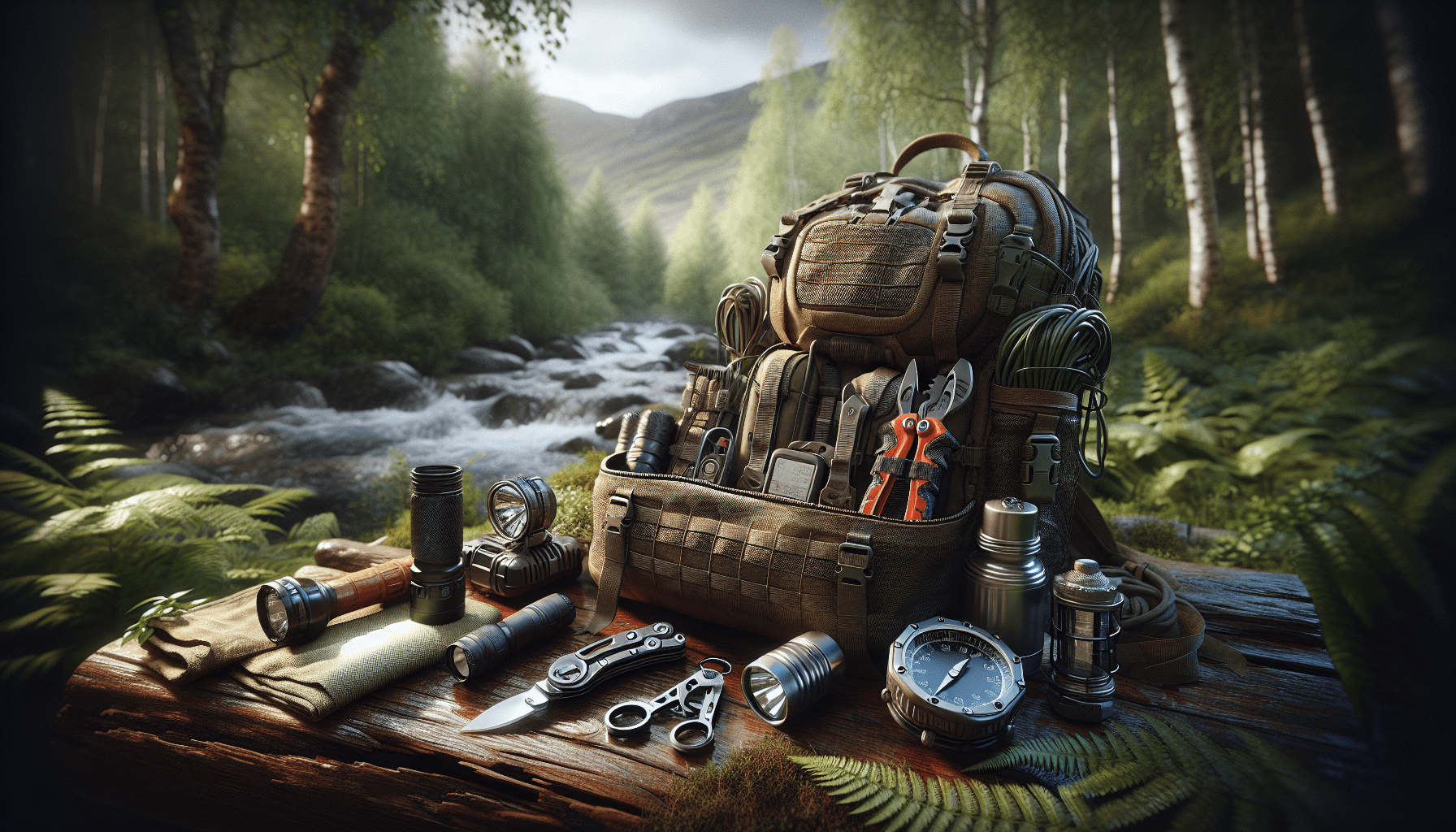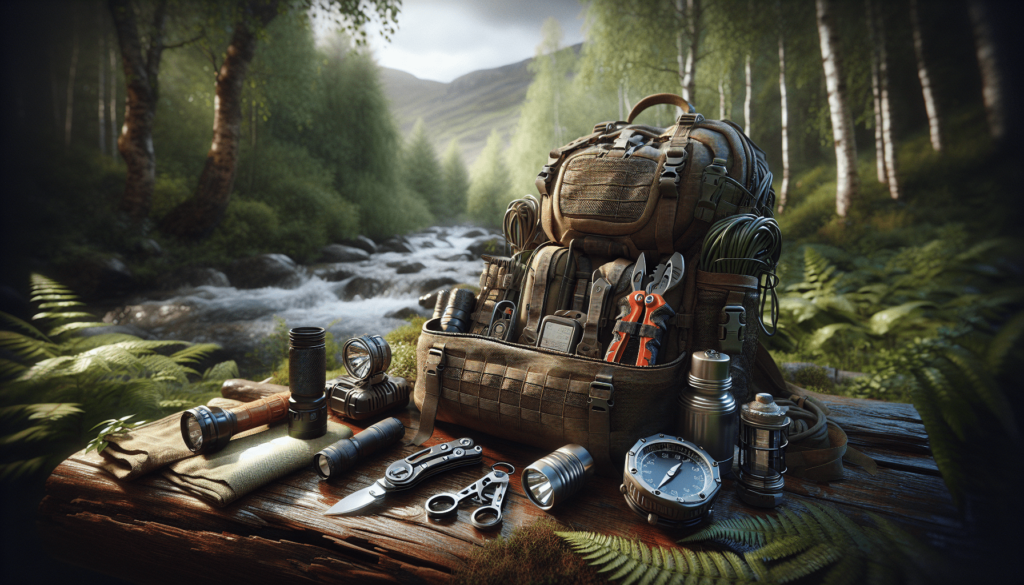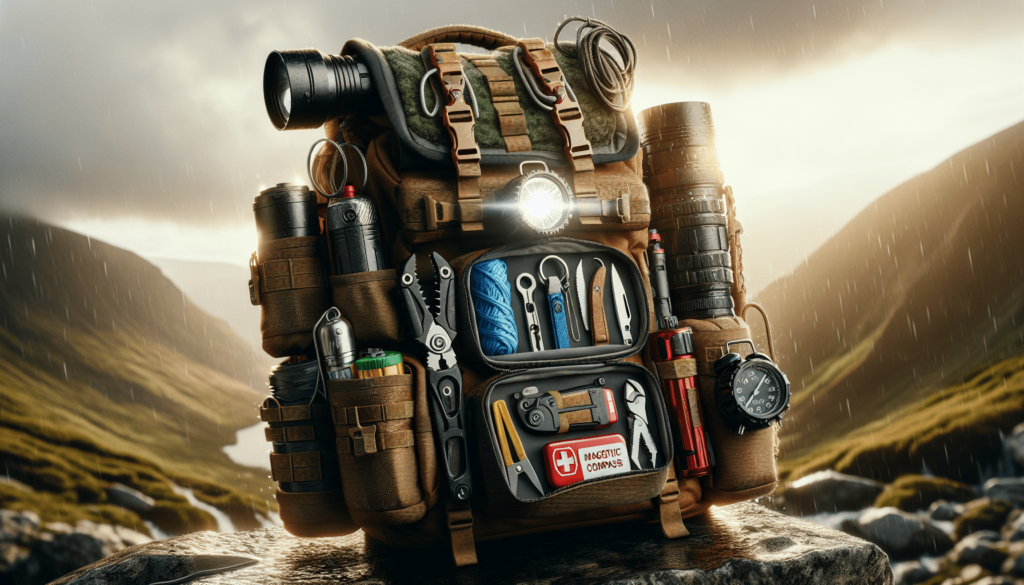
Have you ever wondered what drives people to stockpile canned goods, build underground bunkers, or learn the art of making fire from sticks? If you have, you might just be scratching the surface of a fascinating world—one inhabited by preppers. These folks live by a unique philosophy that prioritizes readiness and self-sufficiency, often sending them on lifetime quests to be prepared for anything life throws their way. So, what exactly is the philosophy of preppers, and what can we learn from their prepared minds?
The Basics of Prepping
Before we embark on this journey, it’s worth understanding the basics of prepping itself. Preppers, or people who prepare for unforeseen emergencies, believe in ensuring that they have what it takes to thrive in difficult situations, whether those are caused by natural disasters, societal breakdowns, or other disruptions.
A Brief History of Prepping
Prepping isn’t a new phenomenon, though its popularity has ebbed and flowed over the decades. The Cold War era saw a spike in prepping activities as fears of nuclear warfare loomed large. From stockpiling canned food to building fallout shelters, people engaged in all sorts of preparatory activities. Today, the motivations may have shifted, but the core idea remains the same.
Modern-Day Prepping
In today’s world, prepping has expanded beyond the fear of nuclear war to encompass a broad range of scenarios—from economic collapse to natural disasters and even job loss. Despite the wide array of concerns, at its heart, prepping is about ensuring safety and security in uncertain times.
Why Do People Prep?
At first glance, prepping might seem like an overreaction, but many preppers will tell you it’s a lifestyle choice grounded in careful consideration. So why do people prep?
Fear and Control
Fear can be a significant motivator. When life feels unpredictable, prepping offers a sense of control. By preparing for the worst, preppers aim to remove the fear of the unknown from their lives.
Self-Reliance and Independence
For many, prepping is about self-reliance. In a world where we can hardly go a day without Google or Amazon, preppers aspire to reduce their dependence on external systems, be it grid electricity or supply chains. It’s about being able to stand on one’s own two feet, come what may.
Community and Family
It’s not just about the individual. Many preppers are motivated by a sense of duty to protect their families and communities. This drive to create safe havens for loved ones is a powerful motivator.

The Lifeblood of Prepping: Philosophy
At its core, the philosophy of prepping is rooted in a few key beliefs that shape how preppers view the world and their place in it.
The Right Mindset
The right mindset is all about being proactive rather than reactive. Preppers believe in anticipating potential problems and addressing them before they unfold.
Knowledge is Power
Preppers place a strong emphasis on acquiring skills and knowledge. Whether it’s learning first aid or mastering the art of building a shelter, preppers believe that the best survival tool is what they know.
Balance of Preparedness
While some folks imagine preppers as basement-dwelling hermits surrounded by rows of canned beans, the truth is more nuanced. The balance lies in preparing without letting it take over one’s life. It’s not about paranoia—it’s about prudence.
Prepping in Practice
Alright, so what does prepping actually look like? What practical steps do preppers take to ensure they’re ready for whatever comes their way?
Food and Water Storage
One of the most fundamental aspects of prepping involves ensuring you have a sufficient supply of food and water. Preppers often have a stocked pantry that would make even the most enthusiastic Costco shopper envious.
| Item | Purpose |
|---|---|
| Canned Goods | Long shelf life, easy to store |
| Rice and Grains | Versatile, high in calories |
| Water Filtration Systems | Ensures access to clean water, even if municipal supply fails |
Energy and Power
Electricity is something most of us can’t imagine living without, but preppers prepare for potential outages by investing in alternatives such as generators, solar panels, or even simple things like candles and batteries.
| Method | Description |
|---|---|
| Generators | Provide power during outages |
| Solar Panels | Renewable energy source |
| Wind Turbines | Another form of renewable energy |
First Aid and Health
Medical emergencies can be challenging even in the best of times. Preppers often keep well-stocked first-aid kits and learn basic medical skills to be as self-sufficient as possible in health matters.

Community and Collaboration
Despite the common stereotype of a prepper as a lone wolf, community plays a significant role. Many preppers form networks or group together in “mutual aid” setups where resources and skills are shared. It’s about creating a support system that can work together in times of need.
Prepper Groups
Yes, they exist and are surprisingly organized. From attending prepper conventions to participating in online forums, engaging with a community allows like-minded people to share tips, resources, and strategies.
The Social Perception of Prepping
Let’s face it, preppers can be the subject of jokes and misunderstanding, often depicted as wearing tin foil hats and being eternally ready for the zombie apocalypse. But these stereotypes overlook the reasonable and practical side of prepping.
Media Representations
Movies and TV shows often portray preppers as unhinged or eccentric. While this makes for entertaining content, it can obscure the fact that there’s a lot to learn and admire about the prepper lifestyle.
Breaking the Stigma
Learning about prepping should encourage us to appreciate the skills and foresight it requires. If nothing else, the philosophy of preppers challenges us to think about our own reliance on modern conveniences.
Lessons We Can All Learn
Even if you never plan to build an underground bunker, there are valuable lessons to glean from the philosophy of prepping.
Being Prepared Isn’t Silly
After all, the Boy Scouts got it right with their motto “Be Prepared.” Whether it’s a flat tire, a power outage, or, heaven forbid, a pandemic, having some basic preparations makes life smoother and less stressful.
Skills Over Stuff
While gear and supplies are essential, the smartest preppers know that their greatest asset is their skill set. Learning practical skills can increase your resilience in unexpected situations exponentially.
Simplicity Is Key
In a world obsessed with consumerism, preppers show us that it’s possible to live simply and focus on what truly matters—safety, well-being, and adaptability.
Conclusion: Unpacking the Prepping Philosophy
At its essence, the philosophy of preppers is about expecting the unexpected and being ready to face it with grace and capability. It’s about balancing caution with optimism and self-reliance with community spirit. Whether driven by fear, love, or a little bit of both, preppers teach us that a little preparedness can go a long way in ensuring peace of mind.
Embracing aspects of this philosophy may not mean building a bunker, but perhaps next time you hear a thunderstorm warning or a hurricane coming your way, you’ll think about picking up an extra loaf of bread or learning how to safely purify water. The lessons from prepping can empower us all to face life’s uncertainties with a bit more confidence and a fair bit less panic.
